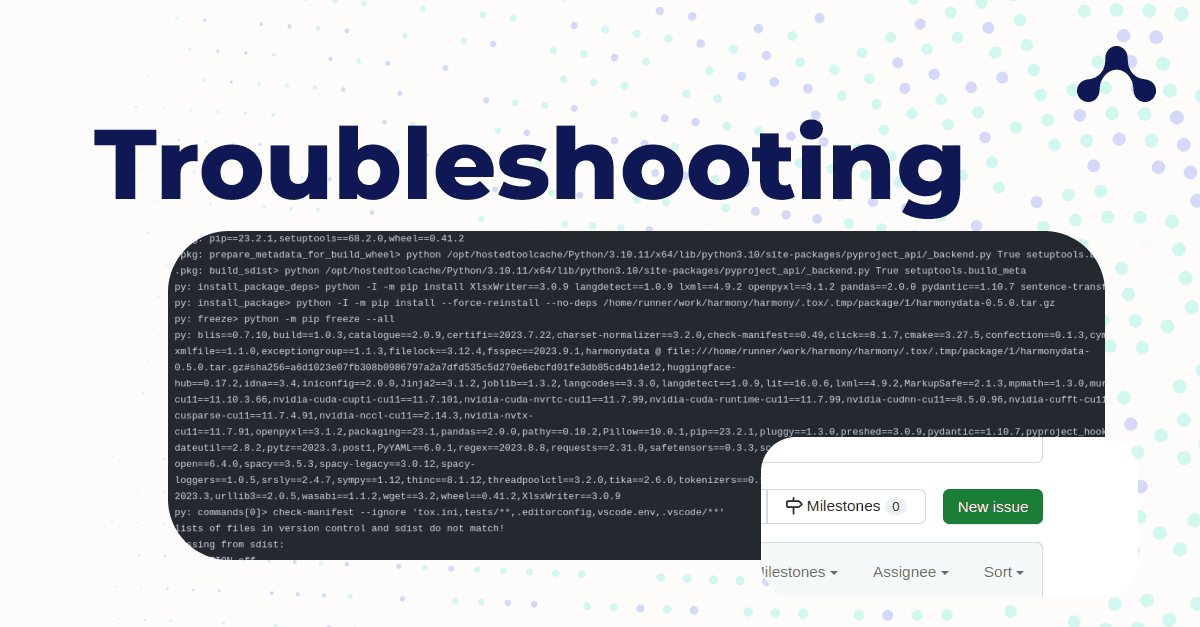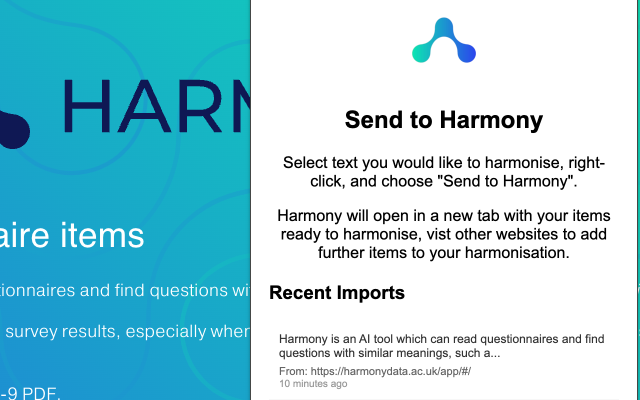
Harmony tends to perform better if you upload a file with item numbers.
If there are are no question numbers in the instrument, it’s very hard for Harmony to distinguish question text from other content such as the copyright information. Click here to see an example PDF with question numbers included.
Also, if your PDF is a scanned document, please see if you can find a fully digitised (OCR’ed) version of the document.
We suggest either finding a file with question numbers or better quality content. Or try a different file format such as Word, Excel or CSV. We have guidance on formatting your files for Harmony.
Harmony supports:
Finally, feel free to raise an issue to let us know that your PDF isn’t being parsed. Please also share the PDF in question. Harmony is an open source tool for social sciences research.

